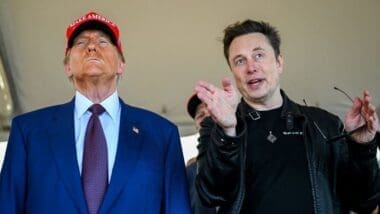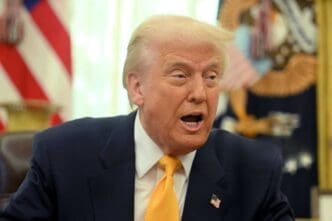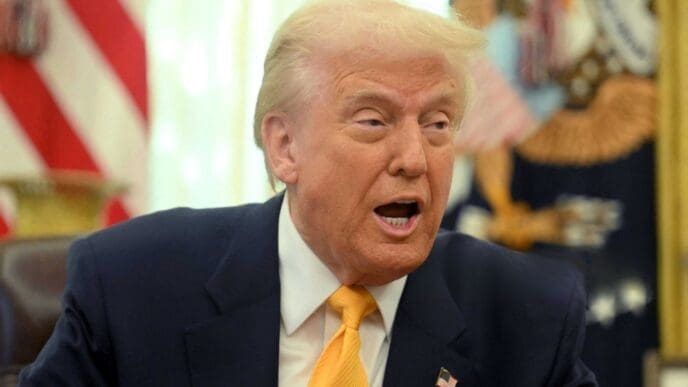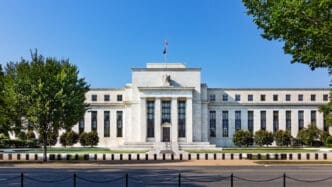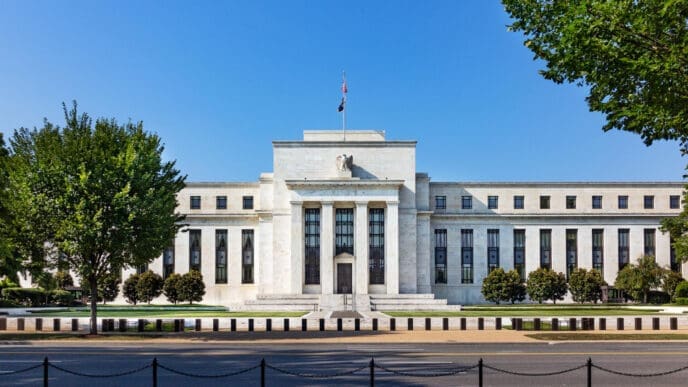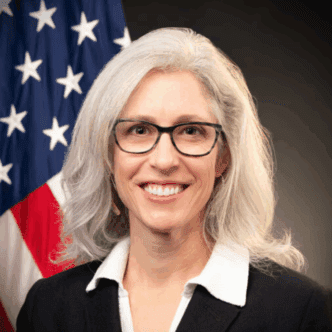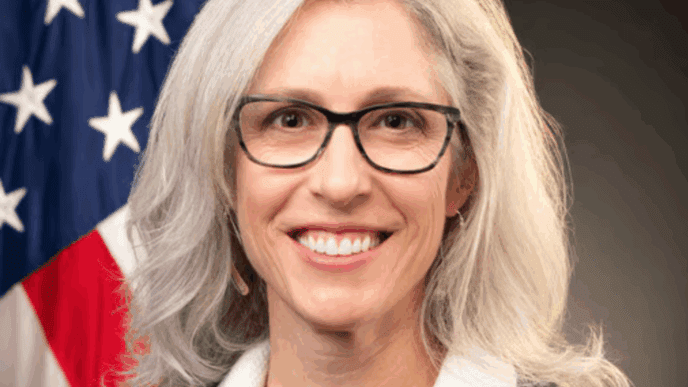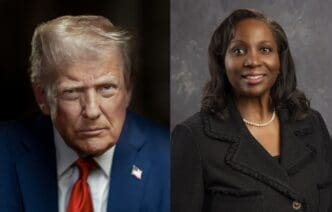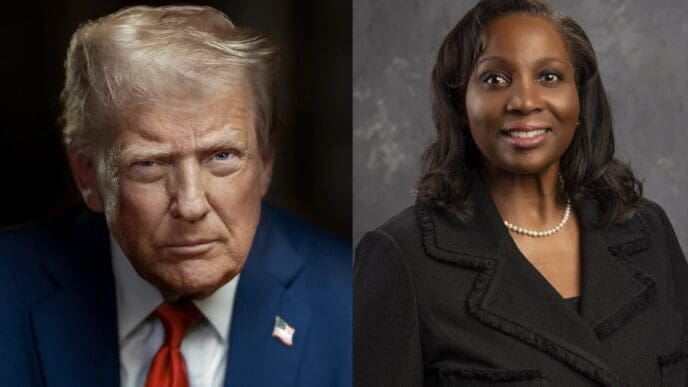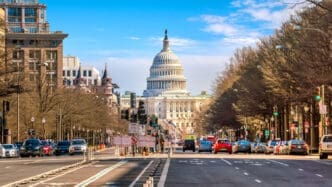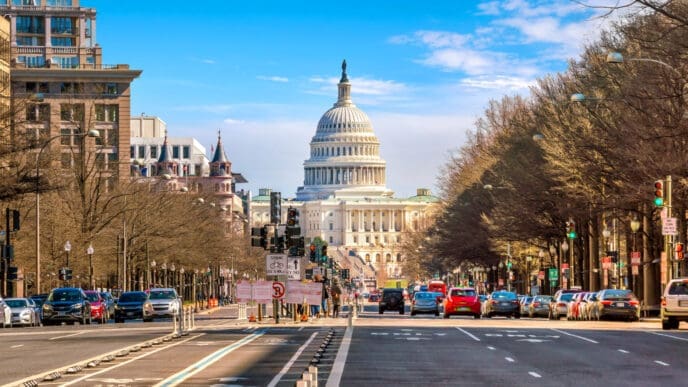The re-election of Donald Trump has prompted a noticeable surge in engagement between several high-profile CEOs and the president-elect, reflecting a strategic alignment at the nexus of corporate interests and political influence. This analysis delves into the multifaceted interactions taking place in the wake of Trump’s electoral victory, examining the motivations, methods, and implications of these corporate leaders’ efforts to secure a favorable stance with the incoming administration.
Strategic Engagements: The Art of Lobbying
The post-election landscape has seen over ten prominent CEOs actively courting Trump through a series of strategic meetings and financial contributions. These interactions are not merely ceremonial; they are part of a calculated effort to gain access to the president’s ear, a rare privilege that can lead to significant influence over policy matters. For instance, Spotify’s CEO Daniel Ek has ventured into data-driven discussions with Trump, highlighting the performance metrics of pre-election content on streaming platforms. By presenting concrete evidence of the media’s impact, Ek hopes to align Spotify’s interests with Trump’s agenda, which could potentially include regulatory considerations related to digital content and streaming services.
Financial Contributions: The Currency of Influence
A notable aspect of these engagements is the financial backing provided by CEOs during these visits. Many executives arrived with million-dollar checks aimed at supporting Trump’s inauguration activities, a gesture that underscores their recognition of the need to invest in political capital. Such contributions also send a clear signal of loyalty and support, potentially paving the way for increased access to Trump and his administration. This intricate dance of financial support and political favor is a hallmark of corporate lobbying, where monetary contributions are often viewed as a means to gain influence over legislative and regulatory outcomes.
The Tech Sector’s Role: A Shift in Dynamics
Among the technocratic elite, Elon Musk stands out for his proactive engagement in the political domain. His involvement has transcended typical corporate lobbying, as illustrated by his influential role in thwarting a government funding deal that nearly led to a shutdown. Musk’s endorsement of Trump and his financial contributions to the campaign signify a shift in the tech sector’s dynamic with the Republican party, particularly in light of previous conflicts over regulatory policies and social media governance.
This newfound collaboration extends even to traditionally adversarial relationships within the tech community. A notable example is the contentious dinner between Trump and Amazon founder Jeff Bezos. Despite their history of conflict—marked by Trump’s frequent criticisms of Amazon’s business practices—the meeting signifies a willingness to explore collaborative avenues, with Bezos advocating for partnership opportunities. This shift reflects an acknowledgment among tech leaders of the necessity to align with the administration to navigate a complex and evolving regulatory landscape.
Common Ground: Business Interests and Policy Formation
The overarching theme of these discussions is the pursuit of mutual goals, notably in areas such as domestic manufacturing and job creation. CEOs are keen to influence policies that could foster a more favorable business climate, particularly in sectors that stand to gain significantly from Trump’s economic policies. However, beneath these optimistic discussions lie nuanced concerns regarding potential policy shifts, particularly in light of the various pressures facing specific industries.
One critical area of focus is the communications sector, where figures like Mark Zuckerberg have engaged in dialogues with Trump to redefine tech policy. With the historical tension surrounding censorship and the influence of social media on political discourse, the outcome of these discussions could have lasting implications for how technology companies navigate their roles in society and politics.
Pharmaceutical Industry: Navigating Policy Waters
Another sector poised to significantly impact the policy landscape is the pharmaceutical industry. Recent meetings held at Mar-a-Lago involving pharmaceutical executives have spotlighted discussions around drug pricing and the role of pharmacy benefit managers (PBMs). Trump’s expressed commitment to addressing the cost burdens imposed by intermediaries in drug distribution indicates a willingness to tackle complex issues that have long plagued the healthcare sector. The outcome of these engagements could reshape the pharmaceutical landscape, particularly as companies brace for potential reforms backed by the administration.
Looking Ahead: Future Engagements and Strategic Alignments
As the new administration gears up, anticipation mounts regarding upcoming meetings with other industry leaders, including the CEO of Walmart. These discussions are expected to further align corporate ambitions with political goals, reflecting a broader trend where business leaders actively seek to shape the narrative and direction of policy-making in their favor.
The corporate maneuvering for influence in Trump’s administration underscores a strategic intersection of business and politics, where CEOs are motivated not only by a desire to advance their company’s interests but also by the broader implications for their industries. As these engagements unfold, the nature of Trump’s leadership—with its unpredictability and dynamic shifts—will undoubtedly influence the outcome of corporate lobbying efforts and the overall business landscape for years to come.
By and Large
The active lobbying by CEOs for influence with President-elect Trump reflects a critical juncture where business leaders are seeking to ensure their interests are represented in the new administration. Through strategic meetings, financial contributions, and a focus on collaborative policy-making, these executives aim to navigate the complexities of aligning with a president known for his volatile leadership style. The implications of their efforts will likely resonate throughout the business community, shaping both corporate strategy and regulatory frameworks in the years ahead. As these dialogues continue to evolve, the interplay between corporate power and political influence will remain a defining characteristic of Trump’s administration.
